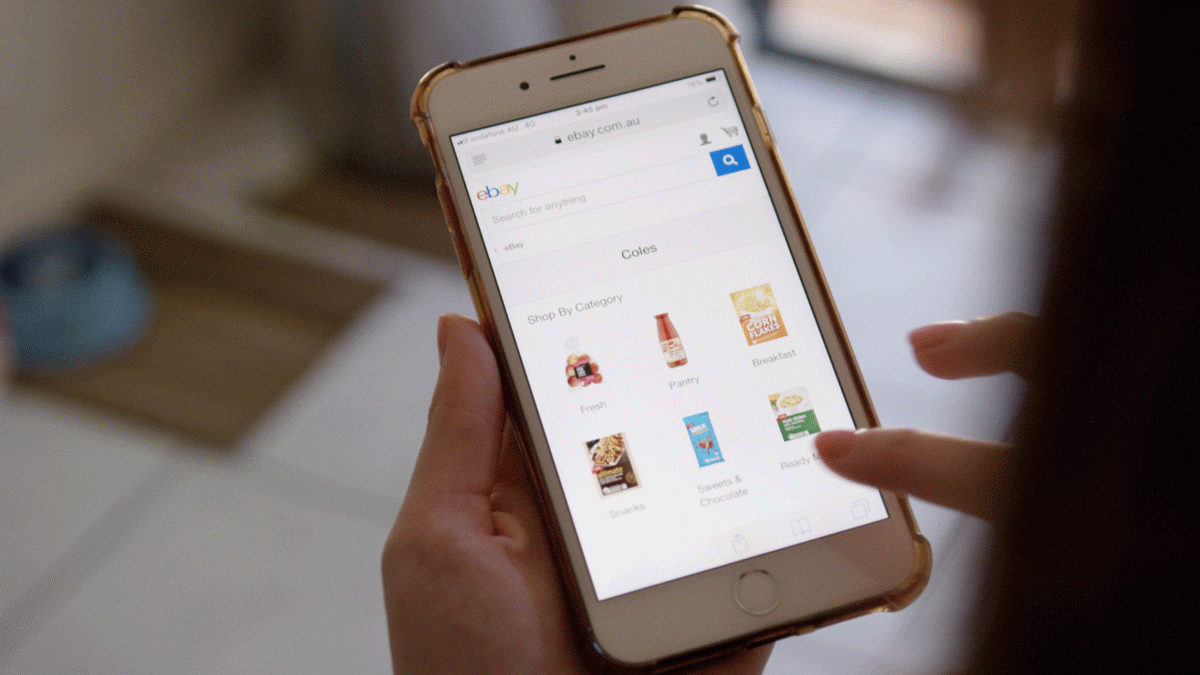‘Massive risk’: How Coles’ unlikely partnership with eBay could backfire


Odd couple: Industry watchers have questioned the merits of Coles' partnership with eBay. Photo: eBay
Coles and eBay have expanded their online grocery offerings, but retail experts say the collaboration is a confusing – and risky – one.
On Monday, the firms announced that fresh and frozen foods would be added to the range, with shoppers also allowed to choose the date and time their products are delivered.
Coles first started selling “everyday essentials” including pantry, household, and beauty items on eBay in March, in a bid to reach the online marketplace’s 11 million monthly visitors.
“By enhancing our partnership with eBay, we are enabling anytime, anywhere shopping, providing our customers another convenient way to access our products and have them delivered straight to their door at a time that works for them,” Coles Online chief executive Alister Jordan said.
The push comes as traditional retail powerhouses are being forced to find creative ways to attract customers.
Last month, department store David Jones revealed plans to roll out a range of upmarket takeaway fare at BP service stations.
Just as that coupling left many scratching their heads, so too will that of Australia’s second-biggest supermarket and an international auction website, University of Tasmania retail and marketing academic Louise Grimmer told The New Daily.
A lack of “real brand partnership strength” between Coles and eBay risks leaving customers “confused by the offering”, Dr Grimmer said.
The threat posed by the arrival of online shopping behemoth Amazon, and the upcoming launch of German supermarket chain Kaufland, are likely “motivating factors” behind the collaboration, she said.
Its success will hinge on whether eBay and Coles can “shift consumer behaviour to think about purchasing grocery products from a platform not normally associated with groceries”, Dr Grimmer said.
“It’s going to take time to influence these shoppers, many of whom will take advantage of the introductory discounts etc but may then go back to their normal shopping routines,” she said.
Fresh food delivery still has a long way to go in Australia, Dr Grimmer said, and most shoppers will require “substantial discounts, free and speedy delivery, great customer service and high-quality products” to make the switch from in store to online shopping.
‘Redundant’: eBay move could hurt Coles
Deakin University marketing lecturer Michael Callaghan described Coles’ decision to partner with eBay as “redundant” considering the supermarket already has an online delivery service.
“Successful retailers have a mission. What Coles has been doing lately is too far too diversified, with far too much redundancy,” Dr Callaghan said.
“When we’re talking about business, and retail business, the way to make efficient profits is to reduce redundancy, not increase it.”
Coles already enjoys a significant presence on eBay, thanks to the success of its Little Shop and Stikeez collectables range.
The collectables proved wildly popular, with reports of “rare” figurines selling for more than $6000 on eBay earlier this year, and a market for replicas also springing up.
However, by formally tying itself to eBay “there’s a massive risk” that Coles could dilute its brand and face backlash from customers, Dr Callaghan said.
“Coles has a huge presence from eBay because of people selling those [collectables]. But from a marketing perspective you’re not just diluting your brand but downgrading it because of the association with eBay,” he said.
eBay’s quest to remake itself as a “virtual supermarket”, and not merely a marketplace for second-hand goods, could be behind the move, Dr Callaghan said.
“The only conclusion I can draw is that eBay has cosied up with Coles management to trial this, because eBay has been trying very hard to be seen as mainstream shopping plaza territory.”








